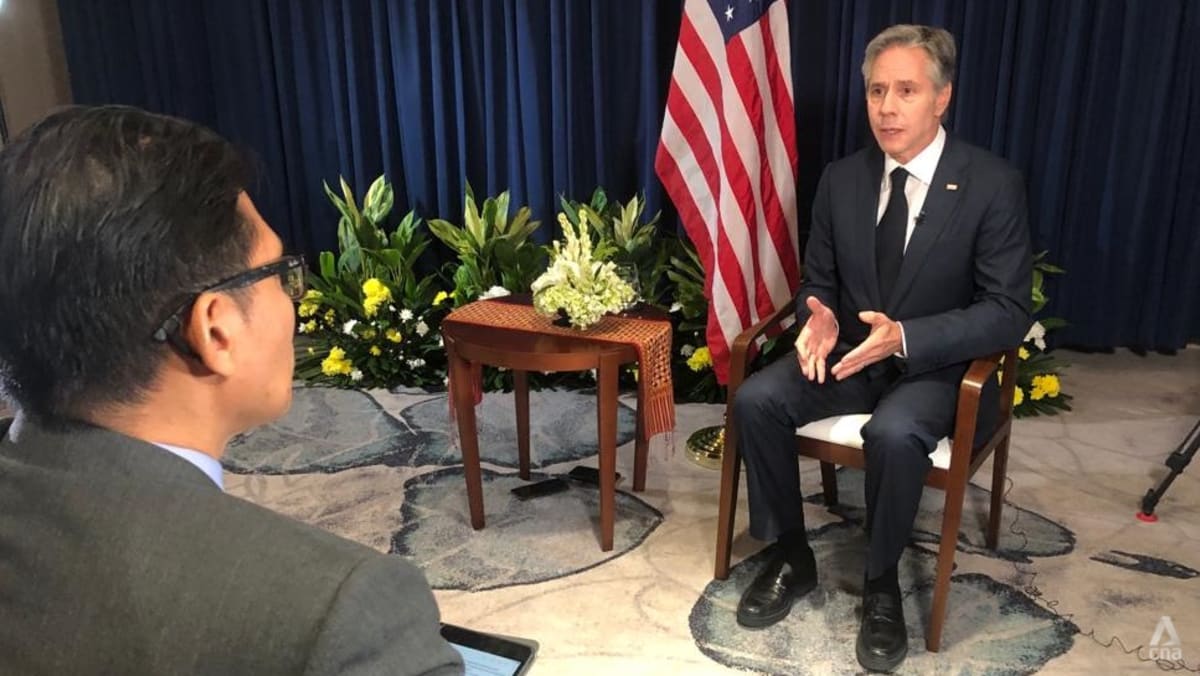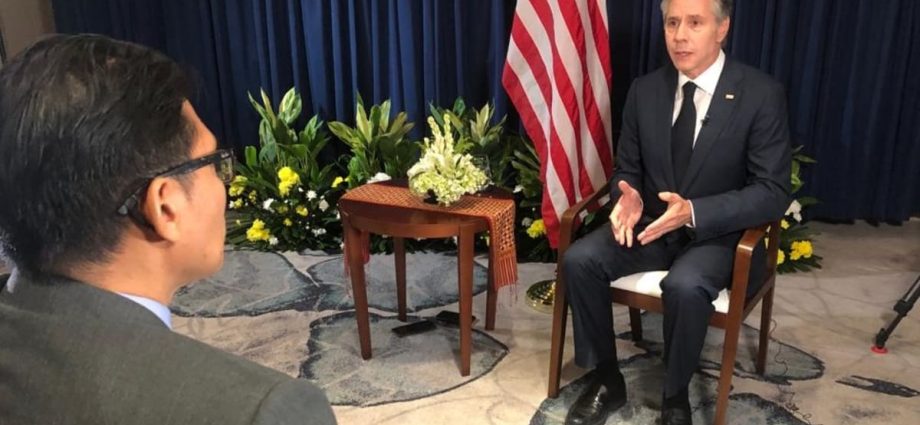
JAKARTA: Southeast Asian countries expect the United States and China to “responsibly manage” their relationship, US Secretary of State Antony Blinken said on Friday (Jul 14).
“We have an obligation … both the US and China, to responsibly manage our relationship,” he said.
“We want to make sure the competition that we are in does not veer into conflict. And that starts with good communication. It starts with making sure there are no misunderstandings or misperceptions.”
He emphasised that dialogue with China is of importance to US President Joe Biden, who has sent a flurry of diplomats to Beijing to engage with Chinese counterparts in recent weeks.
This includes US Treasury Secretary Janet Yellen last week, climate envoy John Kerry in the coming days, and Mr Blinken himself last month.
“We have profound differences that we are trying to manage responsibly. There are areas where we should be able to cooperate because it’s in our mutual interest, and in the interests of other countries as well,” he added.
“I have heard from countries throughout Southeast Asia that there is an expectation that both the US and China will responsibly manage our relationship. That is what we are intent on doing.”
Mr Blinken made the remarks during a wide-ranging interview with CNA’s Indonesia correspondent Saifulbahri Ismail.
The Secretary of State was visiting Jakarta to attend meetings with foreign ministers from the Association of Southeast Asian Nations (ASEAN) as the regional bloc held its annual meeting.
Aside from Washington’s ties with Beijing, the wide-ranging interview also touched on US engagement with Southeast Asia, tensions in the South China Sea, as well as the worsening Myanmar crisis.
ASEAN AND THE SOUTH CHINA SEA
Mr Blinken avoided a question on whether the US means to increase its military presence in the region, especially in the South China Sea.
Instead, he spoke about the US’ economic engagement in the region and stressed the need for freedom of navigation in the Indo-Pacific.
“We are focused intensely on an affirmative agenda that answers the needs of people in the region, as well as our own citizens,” he said
“We are the single largest provider of foreign direct investment (in ASEAN). That’s tremendously beneficial to the region, and also to us … On an economic basis alone, we see so much of the future being written here in the Indo-Pacific broadly, and in Southeast Asia as well.”
Mr Blinken emphasised it is “very important” to have a shared vision with the bloc and a “free and open” Indo-Pacific.
“We, as do all of our partners in ASEAN, share a commitment to freedom of navigation, the rule of law, and to making sure that we preserve a free and open Indo-Pacific that includes the ability of people, goods and ideas to move lawfully and freely throughout this region.”
He added that the US is keen on deepening its engagement with Southeast Asia on issues of shared interests including climate change, energy, economic growth, infrastructure and health.
MYANMAR CHALLENGE
Mr Blinken praised Indonesia’s leadership as ASEAN Chair, despite a deteriorating crisis in Myanmar.
“Indonesia has been leading very strongly and insisting on upholding the Five-Point Consensus and trying to (get) the military junta … to re-engage in dialogue and to move the country back on the track of democracy,” he said.
“But unfortunately, we’ve not seen any kind of positive response from the regime.”
He cited a worsening situation with deadly violence perpetrated by the junta, the continued detention of political prisoners, and the difficulty in getting humanitarian assistance to those affected by the crisis.
Mr Blinken said diplomats have discussed Myanmar extensively during the meetings and ASEAN is united in its approach of resolutely standing behind the Five-Point Consensus, a peace plan adopted in April 2021 between the bloc and Myanmar’s military leaders.
He acknowledged that while sanctions have not deterred the junta from bloodshed, there is a collective need to continue putting pressure on the regime.
“It is important to deny the military regime the resources that it needs to continue to repress the people of Myanmar … It is also very important that countries do not provide weapons, or support the military regime, because that will only add fuel to the fire of its own making.”

